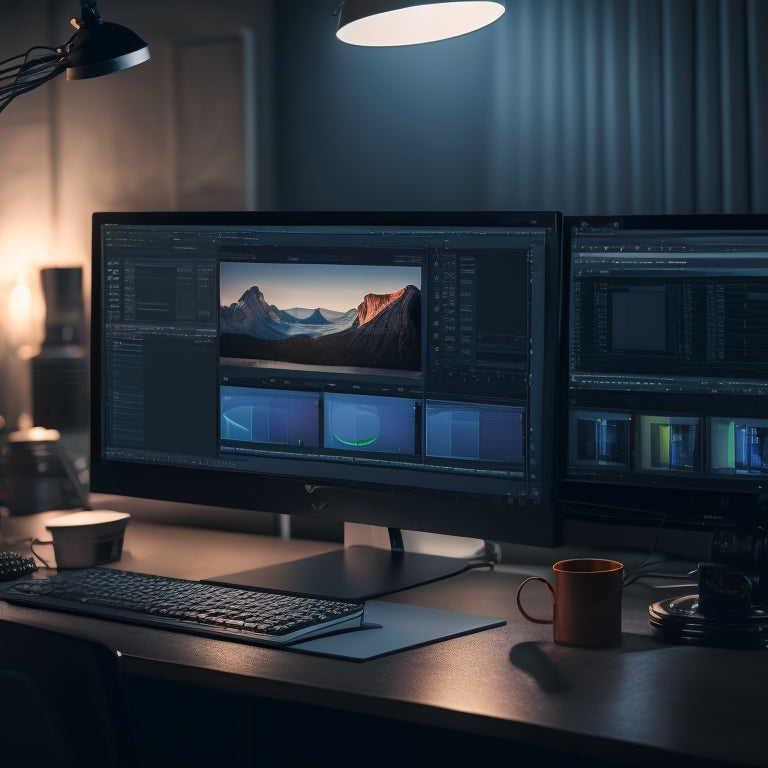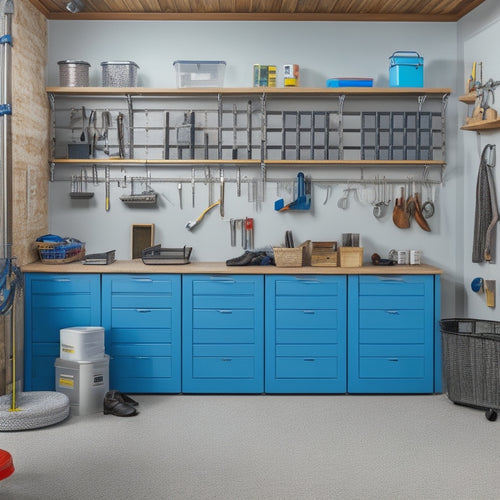
Unlocking Adobe Premiere's Editing Secrets: Expert Tips
Share
I've spent countless hours uncovering Adobe Premiere's editing secrets, from mastering its hidden features like FieldsKit ReInterlacer and Speech-to-Text language modules, to troubleshooting common issues like Avid importing and audio clip problems. I've also fine-tuned my workflow to tackle complex projects with ease, streamlining my process with adjustment layers, editing project XML files, and optimizing local storage. With these expert tips, I've taken my editing skills to the next level. And I'm just getting started - there are even more secrets waiting to be uncovered.
Key Takeaways
Mastering Premiere's Hidden Features
As I explore the intricacies of Adobe Premiere, I'm constantly amazed by the abundance of hidden features waiting to be discovered. From the FieldsKit ReInterlacer that transforms progressive video into spatio-temporal interlaced video to the Speech-to-Text language modules that vary in accuracy based on language selection.
It's like uncovering a treasure trove of advanced techniques and insider tips that elevate my editing game. With each new discovery, I feel like I'm leveling up my skills, and my projects become more polished and professional.
Troubleshooting Common Editing Issues
I've encountered my fair share of frustrating editing issues in Adobe Premiere, from Avid importing AAF files with offline media objects to audio clip and nested sequence woes that wreak havoc on exports.
But I've learned that with advanced troubleshooting techniques, most of these problems can be resolved. For instance, fixing audio problems often requires digging deeper into the clip's properties or re-rendering the audio.
When it comes to resolving import/export issues, optimizing workflow efficiency is key. I've found that taking the time to organize my project and media beforehand can save me hours of frustration later on.
Elevating Your Editing Workflow
By streamlining my editing workflow, I can focus on the creative aspects of video production, rather than getting bogged down in technical inefficiencies.
I've learned that workflow optimization is key to maximizing Premiere's full potential. By implementing advanced techniques, such as utilizing adjustment layers and editing project XML files, I can work smarter, not harder.
I've also discovered the importance of local storage, opting for RAID or SSD for speed and responsiveness.
By fine-tuning my workflow, I can tackle complex projects with confidence, and Premiere's limitations become less of an issue.
With an optimized workflow, I can take my editing skills to the next level, and deliver outstanding results that impress even the toughest clients.
Frequently Asked Questions
Can I Undo Changes to a Single Clip in a Premiere Project?
"Ugh, edit regret is the worst! Thankfully, I can undo changes to a single clip in Premiere by using the Clip History panel - it's a lifesaver for when I realize I messed up, again."
How Do I Ensure Color Consistency Across Different Camera Angles?
Crafting cinematic cohesion, I carefully curate color consistency across camera angles by creating a thorough color management plan, ensuring a unified aesthetic that mesmerizes my audience, and saves me from frustrating fixes in post-production.
What Is the Optimal Export Setting for 4K Video on Youtube?
When
Can I Use Premiere on a Virtual Machine for Collaborative Editing?
"I've tried running Premiere on a virtual machine for collaborative editing, but it's not ideal - laggy performance and compatibility issues arise; I'd recommend using cloud-based storage and real machines for seamless virtual collaborations."
Are There Any Keyboard Shortcuts for Adjusting Audio Levels in Premiere?
"I'm always tweaking audio levels in Premiere, and luckily, I've got some handy keyboard shortcuts up my sleeve! To adjust audio levels, I use Ctrl+Shift+> (up) or Ctrl+Shift+< (down) - it's a game-changer for Adobe audio editing!"
Related Posts
-

What's the Best Way to Declutter a Small Garage?
You'll need a strategic plan to declutter your small garage. Start by appraising your space, identifying cramped area...
-

Why Garage Storage for Motorcycles Falls Short
You're struggling to find a garage storage system that meets your motorcycle's unique needs, resulting in a cluttered...
-

What's the Easiest Way to Organize My Garage?
You're wasting around 30% of your garage's potential due to clutter and disorganization, but you can transform this s...


